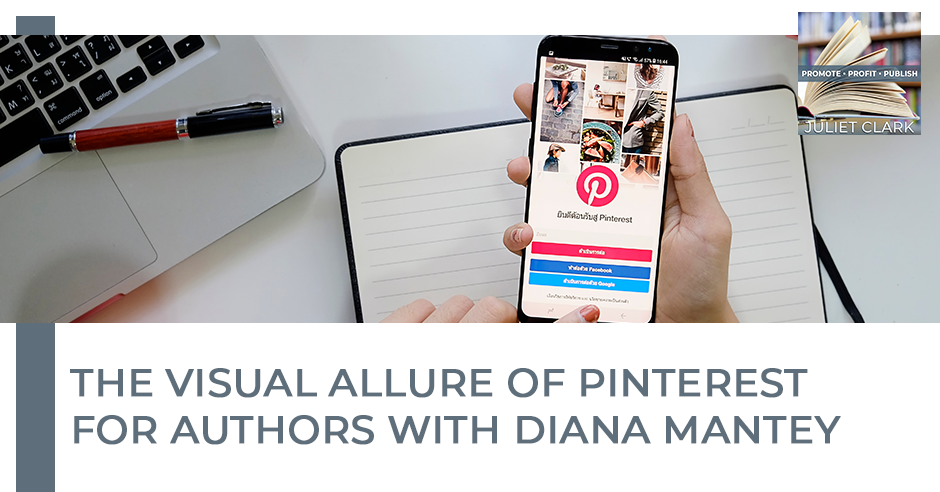
When it comes to social media, most authors only think of Facebook or Instagram. They don’t understand the power of Pinterest and how much it can affect your brand. To teach you more about Pinterest and how it works is Diana Mantey. Diana is the owner of Next Generation Advertising. She helps her clients grow their audience and have better launches with the power of social media. Join your host Juliet Clark as she talks to Diana about the allure of Pinterest. Pin something fun today!
—
Watch the episode here
Listen to the podcast here
The Visual Allure Of Pinterest For Authors With Diana Mantey
In this episode, we’re going to talk a little bit about Pinterest for all of you authors out there who are thinking about using it in the future. Before we get started, I want to remind you to go over and take our Promote, Profit, Publish Quiz at www.PromoteProfitPublishQuiz.com and find out if you’re ready to publish.
I know you put a lot of work into writing, but you have to actually start that audience building and promotion before you start publishing, so you have to have a plan where this is all going. Also, if you want to see these people in person, we have a video over on YouTube or on my website, so go and subscribe to us on YouTube at Superbrand Publishing.
Our guest is Diana Mantey. She is a Facebook Ads and Pinterest Manager serving 6 and 7 figure service-based business owners who want to grow their audience, fill their launches, and sell their offers using Facebook Ads and/or Pinterest. She’s based in Tempe, Arizona and works with clients around the world. Welcome, Diana.
Thanks so much. I’m excited to be here.
I’m excited to have you. We’ve been talking about Facebook for years. I know people have gotten a little bit disillusioned with Facebook Ads, but back when I started promoting my books, Pinterest had just come around. I’ve noticed more and more people are promoting their books over there. Can you talk about the value of Pinterest and how everybody gets started with all of this?
The first thing that’s important to know about Pinterest versus something like Facebook, Instagram, or other social media platforms is that it’s social media, but less than the sense of actual social media. It’s more like Google, which is a search engine, and a lot of it is SEO-based. The content that you’re putting up there has a much longer lifespan.
If you post something on Instagram or Facebook, it’s probably showing in the algorithm for a couple of hours, maybe a little bit more or a little bit less, but on Pinterest, it exists forever, so if it’s a really awesome post, it can keep pulling up people for years. It’s a great way for people to find you. It’s pretty easy to get started with Pinterest as with anything.
Pinterest posts exist forever versus Instagram posts that live for an hour.
You can make a business account, and then you can do a lot of things with the pinboards. We can go into talking a little bit about that and the different kinds of boards and strategies you can use for marketing a book specifically. You can do a ton with organic and it also offers the ability to run ads, so if that’s something that you did want to dive into, you certainly can, and they have great support for being able to do that too, but I would always recommend that with anything, start organically first.
It’s predominantly women that use it and have been over there. I personally try to avoid it, but that doesn’t mean you should. I pin recipes and exercises, and I swear that if I made all the recipes and did all the exercises that I pinned, I would be a 400-pound Olympic athlete. You can really get into big time-sucks over there. It’s a shopping place as well, correct?
Yes, it definitely is. The demographic is women who have purchasing power or have a household income of $100,000 or more per year, so it definitely fits in a lot of our ideal client avatar area where a lot of them are going on Pinterest to make a purchase. Pins are a great source, as it is SEO-based, of referral traffic to your website. For every pin, you can essentially link to your website, to Amazon, if you’re selling your book on there, to a free offer or an eBook, if that’s something that you’re offering, or to YouTube.
Anywhere that you’re hosting content, you can use it as a source of getting people to find you in these different places through backlinks that are valued on Pinterest versus on other social media platforms. If you put a link in a Facebook post, Facebook shows it less. They don’t want people going from Facebook to YouTube or to Pinterest, but Pinterest is built on the backlinks. Every pin you can connect to a link drives referral traffic, and it’s driving more referral traffic than Twitter, YouTube, LinkedIn, or Reddit.
It’s really powerful, especially for the user if your ideal client are adult women who have a good amount of purchasing power that is looking to buy. It’s becoming a lot more than recipes, workouts, making your ideal living room, and planning your wedding. Of course, those things still exist and people are creating their own pinboards for that, but it’s also very powerful as a business owner to be able to create an account where your pins are becoming a part of these people’s boards and their online vision board that they’re creating for themselves with Pinterest.
Here’s what I love about it. I got off Twitter in 2016. It used to be a really powerful place for authors, I got off Facebook in 2020, and I don’t do Instagram and all of that has gotten so toxic. Pinterest is truly a place where you can enjoy the visual, shop, and not be bombarded by all that toxicity. That’s the way I feel. You don’t see big wars and arguments. It’s just a calm and fun place.
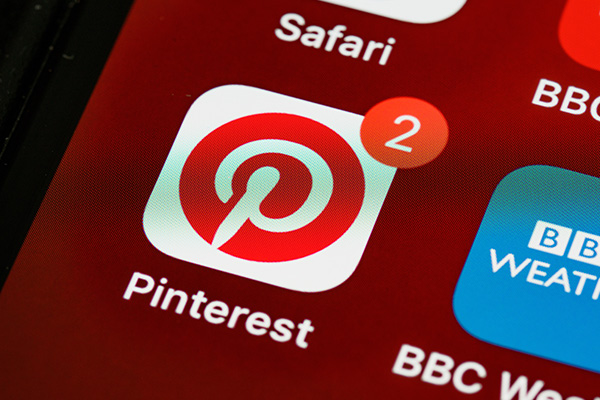
Authors In Pinterest: Pins are a great source of SEO-based referral traffic to your website. If you’re selling a book, you can link your pin directly to Amazon or your website.
There are options to comment on pins, ask the pinners questions, and send messages, but a lot of it is more passive where people are just pinning things that they like, exploring different sites, shopping, and using it as a social media engine. When we’re recording this, it’s coming up on Halloween time, so a lot of people are searching for different things around Halloween, like pumpkin recipes and sweet potato things.
That’s why people go to Pinterest even more. People still go to Google, but using it as like, “I know I can go here and I can find what I’m looking for.” You think of the book that you’ve written and you’re thinking, “What are the keywords that people would be searching that my book is about?” It’s the same thing where if you’re making your boards and your pins and using these keywords. You’re basically making yourself searchable so that people can find you when they’re searching these things.
Full disclosure, my recipes, when I make them, they never look like they do on Pinterest. I had a male friend who used to cook off there all the time and he would share the pictures, and it’s like, “How’d you do that? That looks just like what was on Pinterest. Mine never looks like that.”
Hopefully, it still tastes good.
It still tastes good, but I’m just not one of those pretty cookers. For those people who want to use this for books, you said you could hook it up to Amazon or to your website if you’re selling it there. Talk a little bit about the ads. If you wanted to go next level and run into ads, what foundational things should you have built first?
I would recommend always having an organic base first and then based off of that, they give you insights and analytics, so you can see what your best performing pins are. What are people clicking on the most, and what message is resonating? The other thing is, if you’re creating a pin for, let’s say, your book launch of saying like, “This is my schedule. This is where I’m going to be on these dates,” and you want to share that on Pinterest, you can create different pins. A pin is a unique pin as long as the graphic is different.
You can use the same caption, just change the image. You can have fun in Canva if that’s your thing, but don’t get lost in it, creating 6 to 8 different types of pins for the same offer. Maybe changing up the words or the design a little bit, but you’ll see then which designs and wording on the pin is resonating with people. With anything in seamless marketing messages, there’s going to be a clear winner and a clear loser.
With anything in life, start organically first.
When you know this, then you know if you’re going to promote a post or if you’re going to run ads to have traffic to one of your pins, then you’re going to want to choose the top performer and want to choose it for a top-performing offer too. That is where building your foundation and figuring out what pins rock, which ones I should not run ads to, which ones aren’t getting too much reach, and which ones aren’t people clicking on. That gives you the step above of, “I know this converts organically like how we want to test our offers in advance,” and then from there, you can run ads and traffic to it too.
You can do something like a traffic campaign, which would just bring traffic to your website. It doesn’t always guarantee that people are going to buy for that. You’d be looking for more of a conversion campaign very similar to Facebook and Instagram, where you would install the Pinterest Pixel and you would want to track purchases. That would be more telling Pinterest, “I want you to find people who are going to click on my ad and go buy my book.”
Just to understand the organic piece of this, if I go over to Facebook and I connect with you, then you can see all of my stuff and I can see all of yours. On Pinterest, it’s not like that. You have to have people pinning and following you, and you’re pinning and following people as well. Is that right?
There are still followers, but I would say they’re less important on Pinterest than necessarily on Facebook. On Facebook, if your account is private, then only your friends can see it. Same with other people, if their account is private, only if you’re their friend can they see it. With a business profile, you’re making your things public, so it can be shown to anybody. They don’t need to be your followers.
Basically, if someone does decide to follow you, it means more of your content is going to fill up in their feed, but your content can still be shown to people if they’re not following you. It’s like Google, where as long as they’re searching those keywords, Pinterest is going to say, “Here are pinners or here’s pins,” that is exactly what you typed into the search bar regardless of if you’re following or not. It’s always great to have a following, but it’s more about are you using the right keywords and how people are finding you, and that’s a way to build your following.
What’s a good way to test those keywords?
You can type into the search bar different things that you’re thinking about, and you can see what other things show up or fill out. If you’re in your ideal client’s mind, what would they google? If they were looking for something like what I’m looking for, what would they be googling? Other things would be if they’re a specific career, so you’re like, “This is for bakers, this is for bookkeepers, or this is for interior designers.” You are making sure that job title is in your description because to people who are looking for those things, they are likely going to be searching that in or that’s part of their bio.
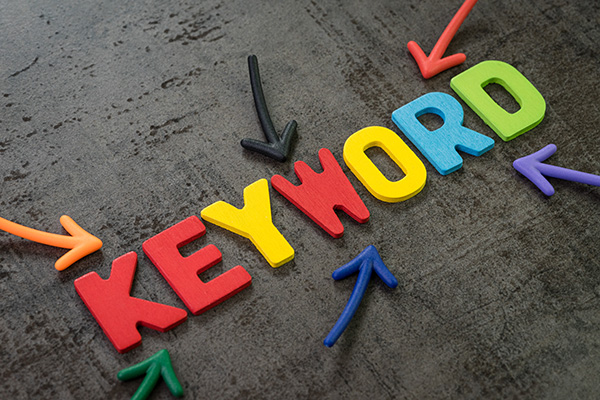
Authors In Pinterest: It’s always great to have a following, but it’s more about using the right keywords. You need to let people find you, and that will help build your following.
Pinterest can use their algorithm and what they know about their users to show them relevant content to. If you’re looking for moms or if it’s a cookbook, recipes or something like that, what do you want to be known for? What are the people that would read your book really looking for, any market research of how you’re looking for your overall messaging and your ideal client, and then what are the words that they would be searching related to what you’re offering?
I have to ask this because I run into this on Pinterest every once in a while. Obviously, with the book, we know we’re going to click on the book and it’s going to lead us someplace else. Should we be careful about being upfront about leading to somebody at someplace else? Let me describe it to you. Sometimes I’ll click on a recipe because I want to make it, and at other times, I’ll click on it, I’ll go to Etsy, and they’re selling the recipe, which always disturbs me. It’s weird. I always look around like, “There’s got to be a free place to get this.”
It’s up to you and your brand if you want to share a $37 offer, buy the recipe, or this comes in a collection for this price on your pin or in your caption, or if you just want to see if people click and what they do when they land there. That comes back to creating the different pins for the different offers. On some of them, you can disclose that this is for a price, and on some of them, you can not disclose it’s for a price and then see from there what happens in terms of clicks, outbound clicks, and saves. Another thing is if you’re like, “I would want to know upfront. That’s just me and my brand is very transparent,” then share it on there. If you’re like, “I believe that if it’s the right thing, people are willing to pay for it once they see it,” then you don’t have to, so it’s totally up to the pinner.
Another thing I noticed is there are a lot of videos on there. Is the conversion rate higher with the video? Does it matter? Some of those videos have the most obnoxious music. Tell us about the video features.
Whatever feels on brand to you, I think it’s the same thing with creating things on Instagram or on Facebook. If the video is on brand for you, go for it, and if it’s not, people are going to be able to tell. If you’re uncomfortable on video and you usually don’t create it, and all of a sudden, you’re feeling like, “I’m forced to create this video for some pins or social media,” that comes through in overall body language, like, “This isn’t usually what I’m doing.” If making Reels and TikToks is part of your brand and that’s what you vibe off of, download them, repurpose them, and use them on Pinterest.
Music depends on the rights to the music. Usually, if you’re going to download it from an Instagram reel, it’s going to download without music, and I think too on Pinterest and depending on some things, people don’t always have their sound on, so that’s up to you. Also, with the rights of the music and who has that.
Pinterest is built on the backlinks.
That’s something to be very careful about. When I worked in advertising, all that music you see in the back of an ad on TV, we have to go buy it and get the rights to it. There was one Christmas where they sold the rights to two different car companies for the same music, and we had to pull our ads because they sold them to them first. It’s called royalty-free. You have to get royalty-free music unless you’ve bought that music for it. My number one question is, on the videos, do their kitchens really look like that? Mine is never that clean when I cook.
I don’t know. If you’re a professional blogger and that’s what you’re doing or if you have a kitchen blog and that’s how you’re making your income, maybe you do clean your kitchen to look like that to make some cash. Sometimes people rent places for photoshoots or to make their videos, so it depends.
They better be making some money to be renting places for video shoots and productions. I don’t get a sense a lot of those do that, but I’m always very curious when everything’s so clean. Anything else we need to know about Pinterest to get started?
I would say, when you’re thinking about what different kinds of pins to share, immediately it comes to like, “I can link where I’m selling my book to my pins,” but otherwise once you do that and you create eight pins, you’re like, “Now, what? What else do I pin?” Other things that you can create as an author on Pinterest is telling your story as an author. Who you are, where you’re from, how you became an author and other books that you wrote. These can link back to the About page on your website, your other social media accounts, or different videos that you’ve created.
Testimonials and feedback from your readers, that’s an awesome thing to share. We all love social proof. It’s a huge driver behind purchases, so when other people are seeing like, “This person bought this book and this was their review, or this professor used this book for teaching their course, that’s awesome.” As a teacher or professor, that would give them an insight of like, “This could be good for my course too.” That’s another thing that you can pin about.
You can also fill multiple books, create different boards for each of your books, and then depending on what kind of book you have, but if you mention other people or organizations, you can pin or follow those different organizations or people that you’re talking about in your book back to that board. When people are looking at their board, they can make connections between the book and finding other people. It’s also a great way to that web of the interconnectedness of like, “If somebody is searching this organization that I wrote about in my book, it’s possible that they can come back and find me.”
I talked about book signings and talks, but if you’re going on tour, sharing in different conferences, or you’re speaking out, anything that gives you that elevated authority and expertise and sharing about different events. Also, as an author yourself, what books are you reading? What other books or things would be valuable to your audience is another great thing to share, as well.
Don’t expect results overnight. Pinterest is SEO-based, so the longer your pins exist, the more they’re going to show.
As with anything, consistency is the name of the game. If you’re like, “I’m going to start on Pinterest,” it’s not like you have to pin every single day. If you want to, more power to you, but if you make a schedule of, “I’m going to do it once or twice a week,” at least you’re being consistent and you’re growing your following. Don’t expect results overnight. It’s SEO-based, so you’ll see that the longer your pins exist, the more they’re going to show.
Maybe in the first week, you have a handful of views, but by the second week, it’s up to 30 or 40, and by the third week, it’s at 100, so by the end of the month, you could have 1,000 views on your pins. It doesn’t happen overnight and everything is going to build on top of each other. It’s like a snowball effect. That’s why I emphasize consistency too because as you continue to show up, Pinterest recognizes that and will continue to keep your pins active.
Where do we find you if we want to find out more, we want to run some ads, or at least talk about what would it take to get started?
You can find me on Facebook, Diana Mantey. That’s probably the best place to find me. I’m also on Pinterest as @Diana_NgEntrepreneur. Feel free to reach out, connect, and we can talk strategy or take a look at what you’re doing.
Thank you so much for sharing all this.
Thank you. It was great joining you.
Important Links
- www.PromoteProfitPublishQuiz.com
- Superbrand Publishing – YouTube
- Diana Mantey
- Diana Mantey – Facebook
- @Diana_NgEntrepreneur – Pinterest
About Diana Mantey
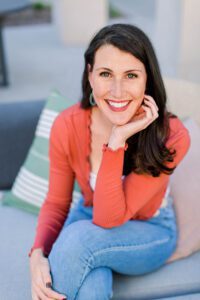 Diana Mantey is a Facebook Ads & Pinterest Manager serving 6-7 figure service-based business owners who want to grow their audience, fill their launches, and sell their offers using Facebook ads and/or Pinterest. She is based in Tempe, AZ and works with clients around the world.
Diana Mantey is a Facebook Ads & Pinterest Manager serving 6-7 figure service-based business owners who want to grow their audience, fill their launches, and sell their offers using Facebook ads and/or Pinterest. She is based in Tempe, AZ and works with clients around the world.

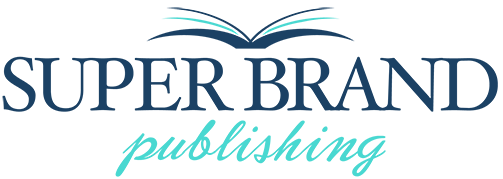

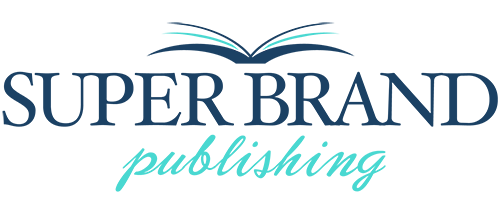

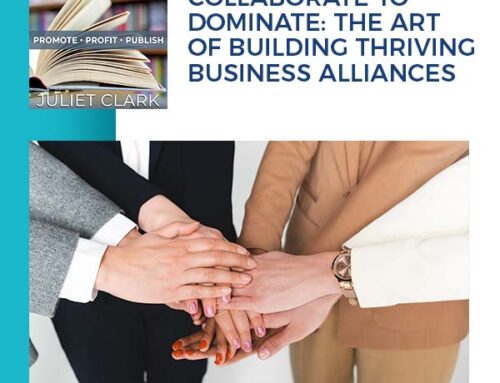
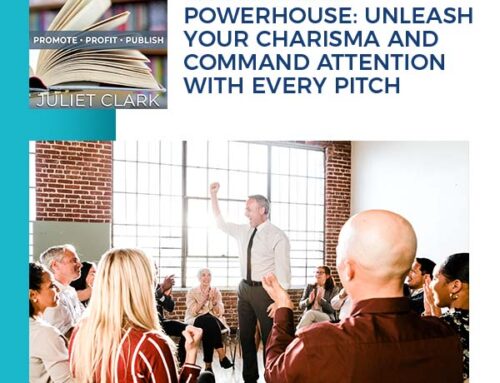
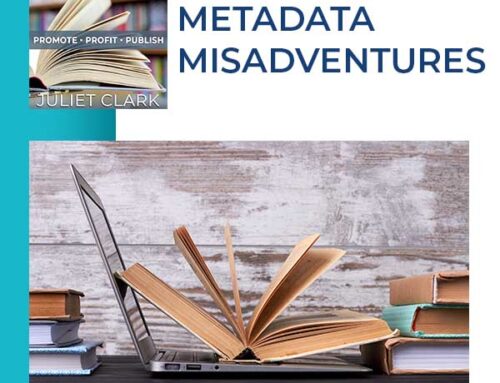
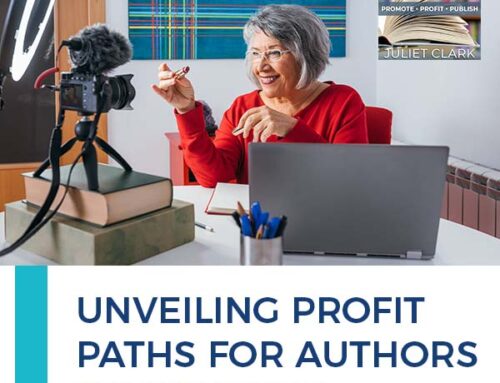
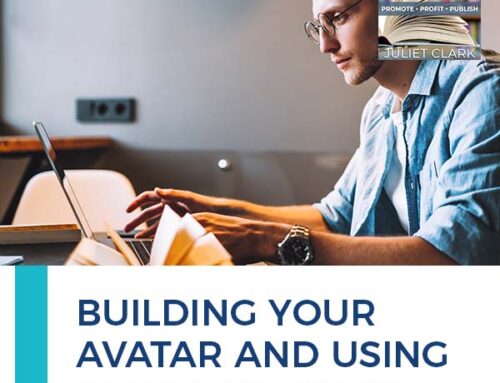
Leave A Comment